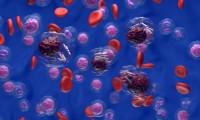-
GSK Expands Again in Cancer, Paying Hansoh $185M for Another ADC
- Source: drugdu
- 205
- December 22, 2023
-
Activist shareholders urge drugmakers to re-evaluate patent strategies, human rights policies
- Source: drugdu
- 100
- December 20, 2023
-
As ICER places a spotlight on pharma’s price hikes, J&J, Roche and more hit back
- Source: drugdu
- 94
- December 13, 2023
-
ImmunoGen’s ADC Elahere wins FDA priority review for ovarian cancer
- Source: drugdu
- 102
- December 7, 2023
-
Elli Lilly Cancer Drug Lands Its Second FDA Approval This Year
- Source: drugdu
- 112
- December 6, 2023
-
Lilly’s Jaypirca blazes leukemia trail with FDA nod, fast confirmatory trial filing
- Source: drugdu
- 97
- December 6, 2023
-
Darzalex Faspro in Multiple Myeloma, Imbruvica-Venclexta in Mantle Cell Lymphoma
- Source: drugdu
- 119
- November 25, 2023
-
Novartis drops subpoena request in trade-secret spat with Takeda
- Source: drugdu
- 112
- November 24, 2023
-
Merck & Co bolsters neurogenerative portfolio with Caraway acquisition
- Source: drugdu
- 107
- November 23, 2023
-
With filing in Sanofi and Mylan insulin lawsuit, FTC amps up scrutiny on pharma’s patent tactics
- Source: drugdu
- 101
- November 23, 2023
your submission has already been received.
OK
Subscribe
Please enter a valid Email address!
Submit
The most relevant industry news & insight will be sent to you every two weeks.













